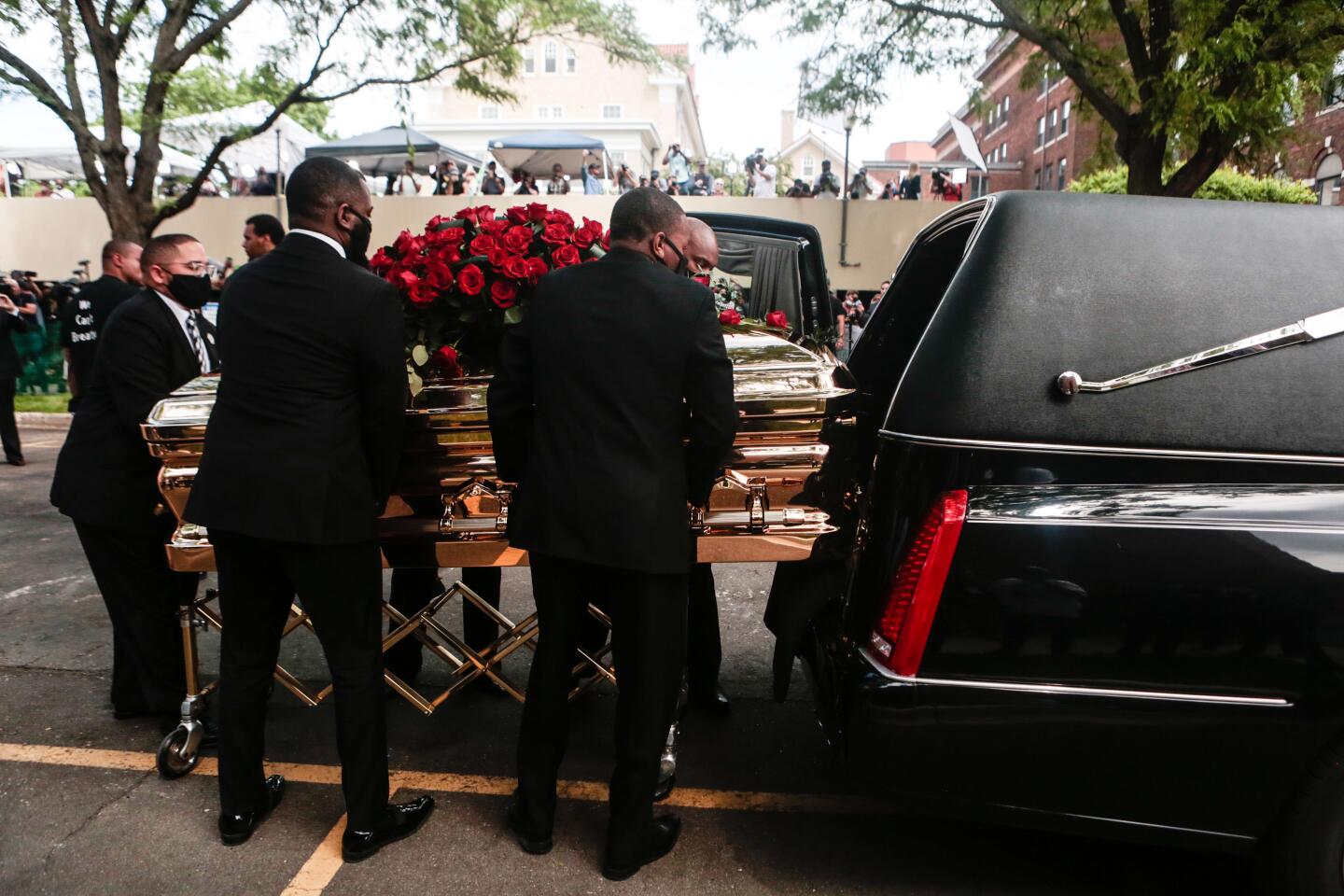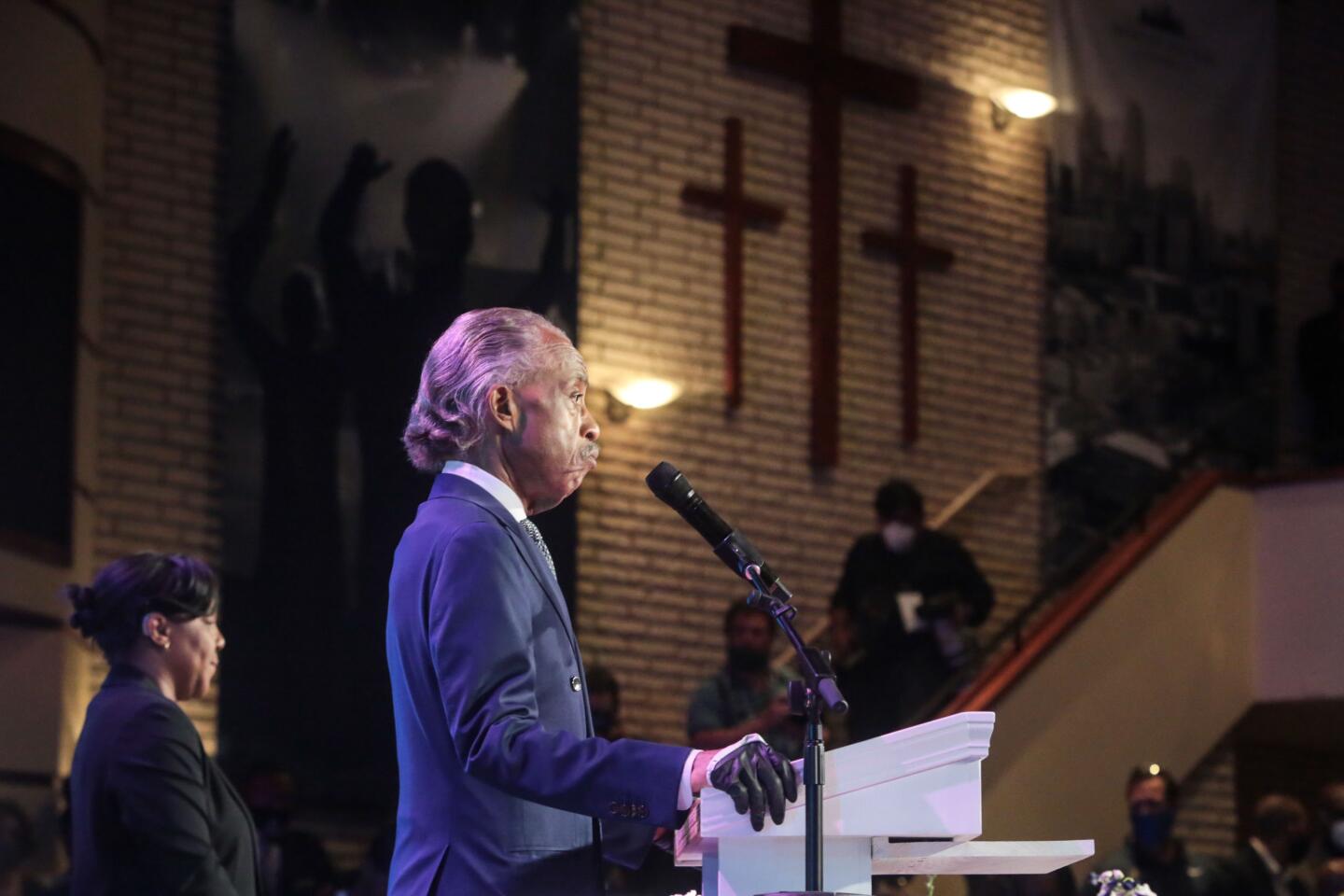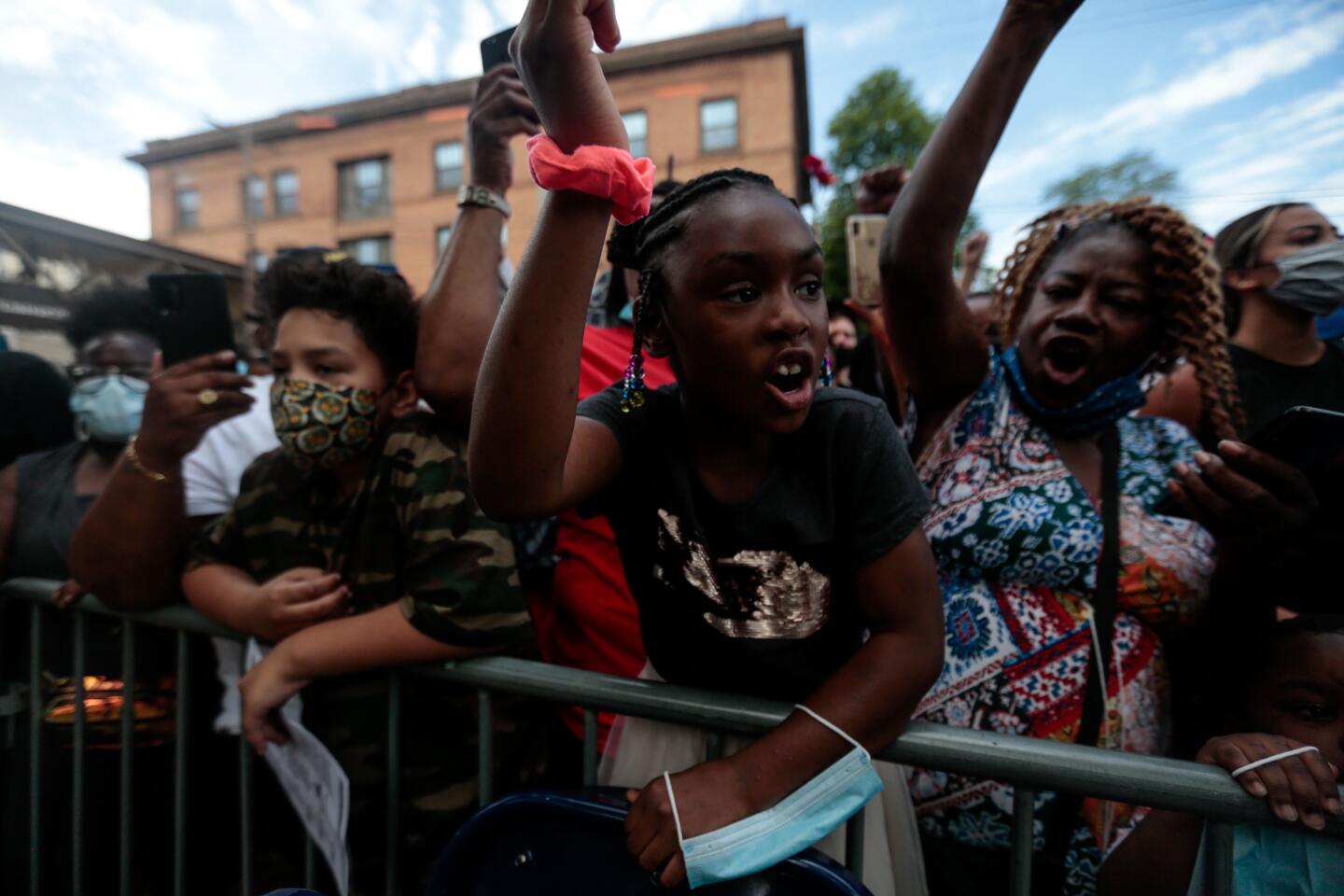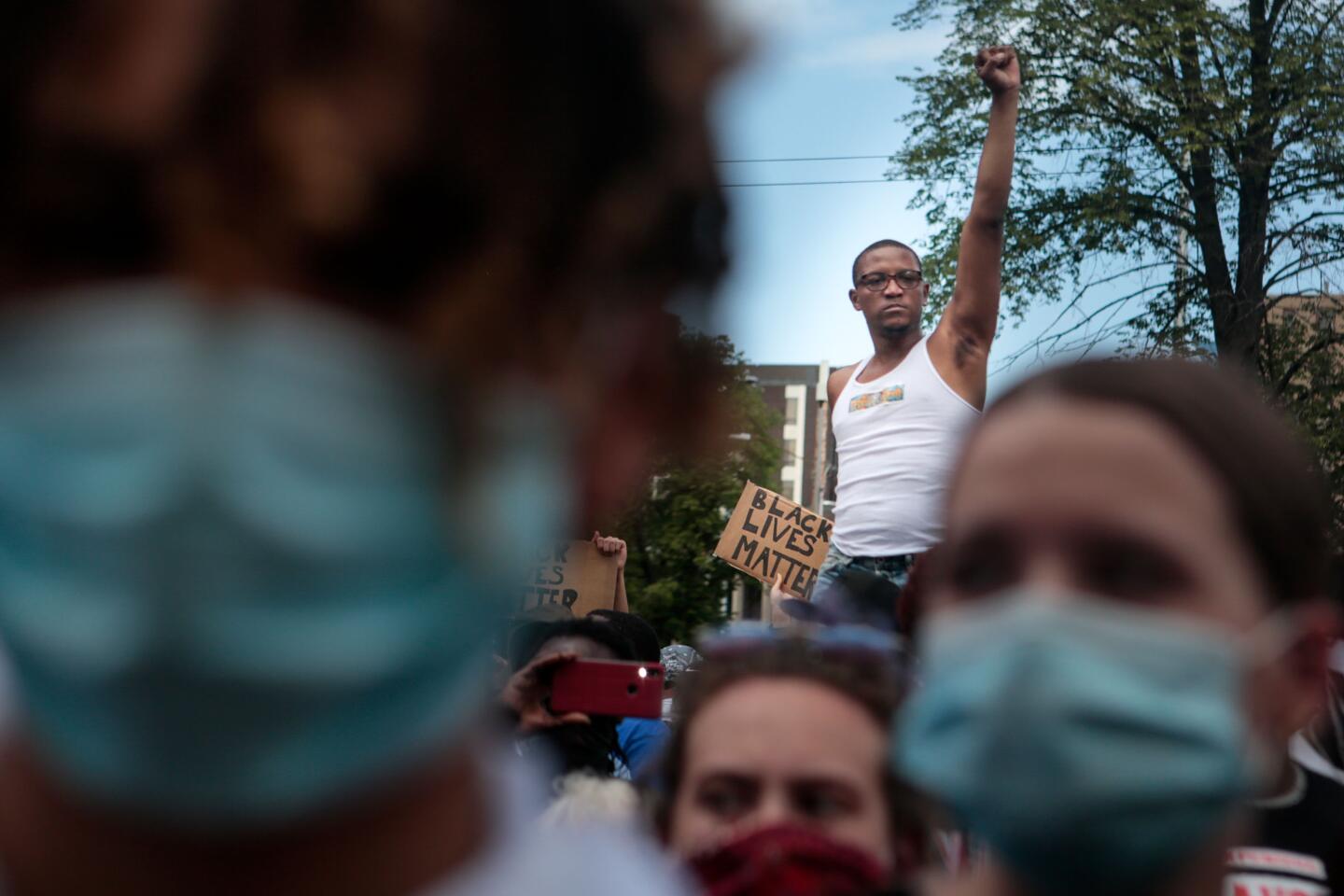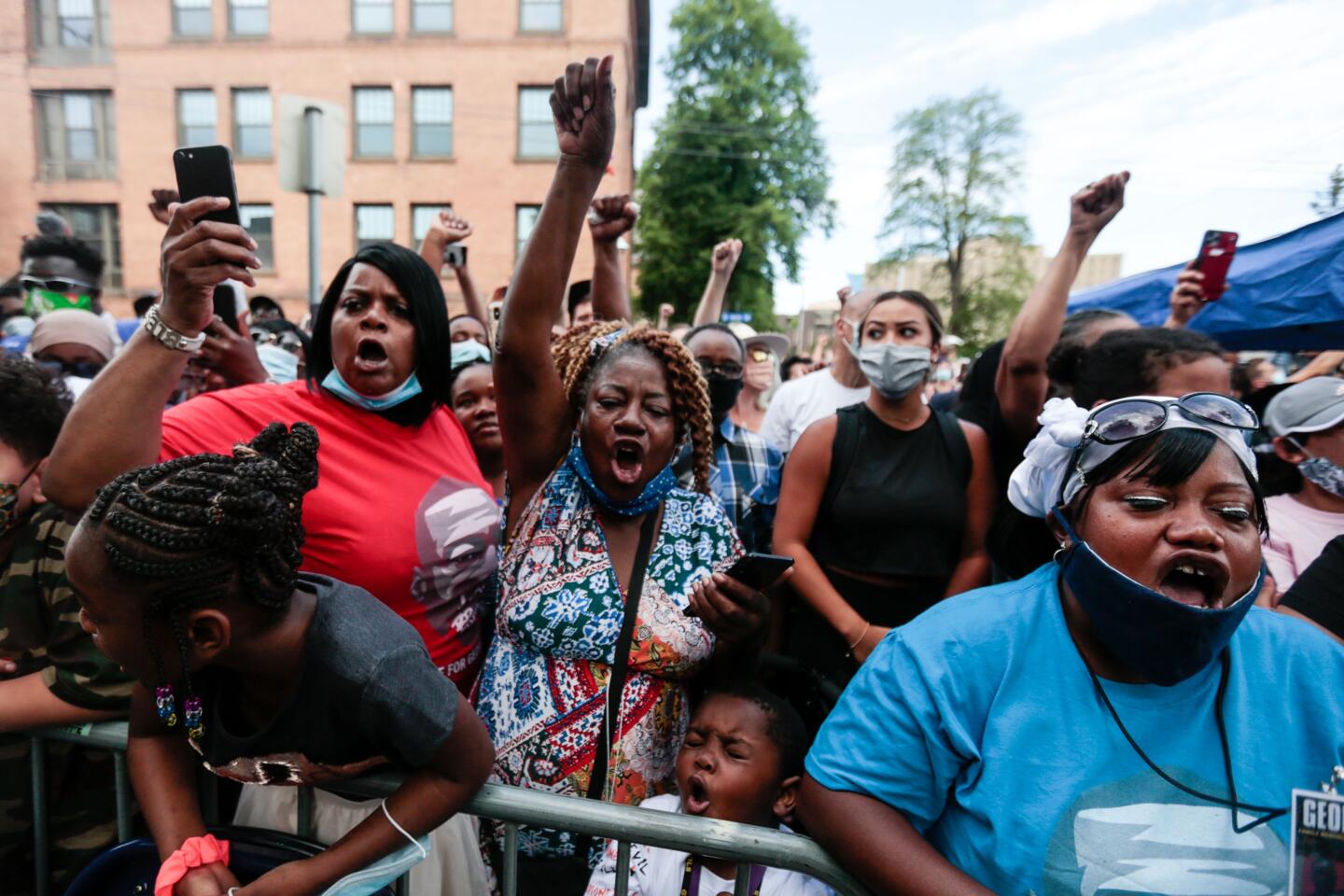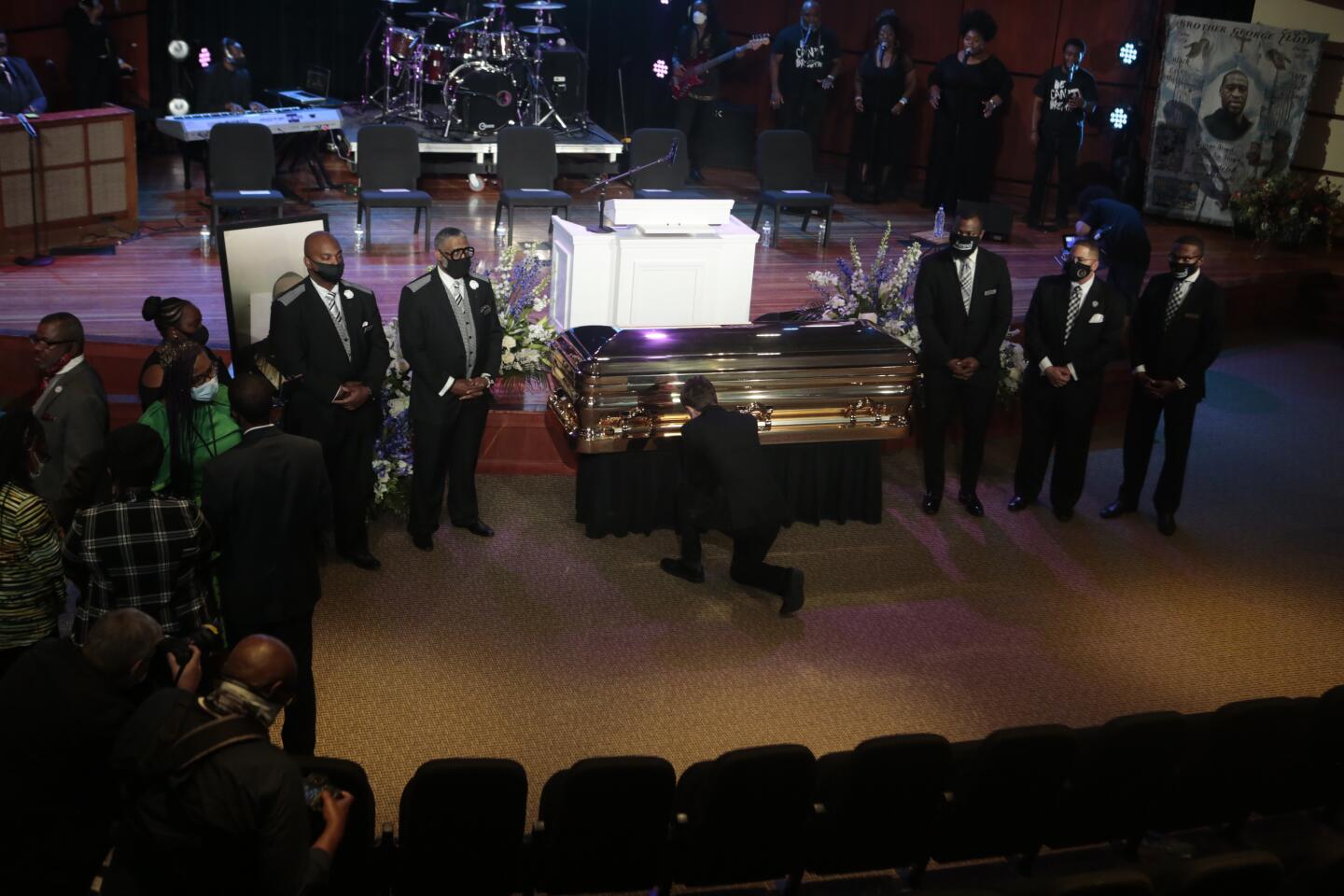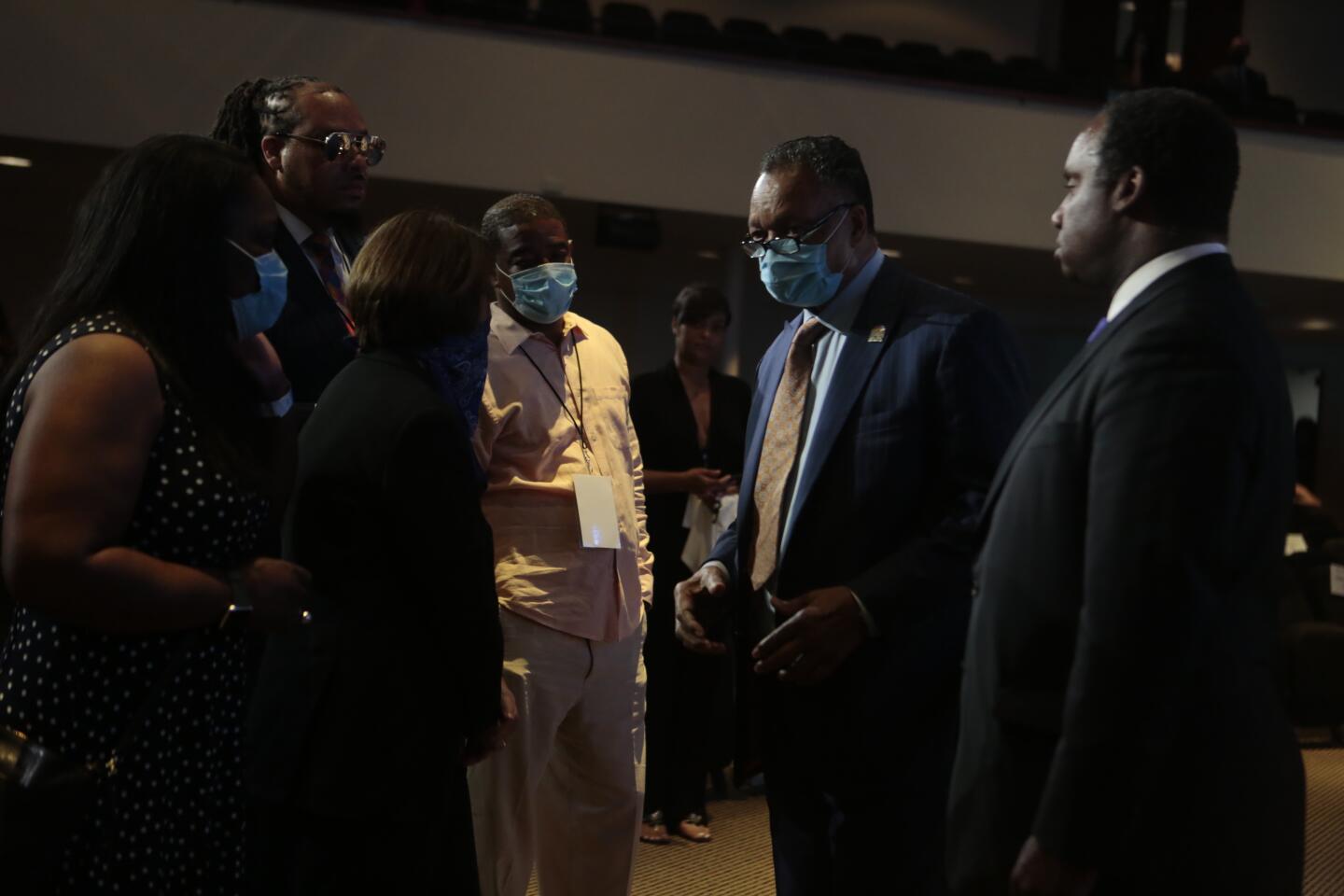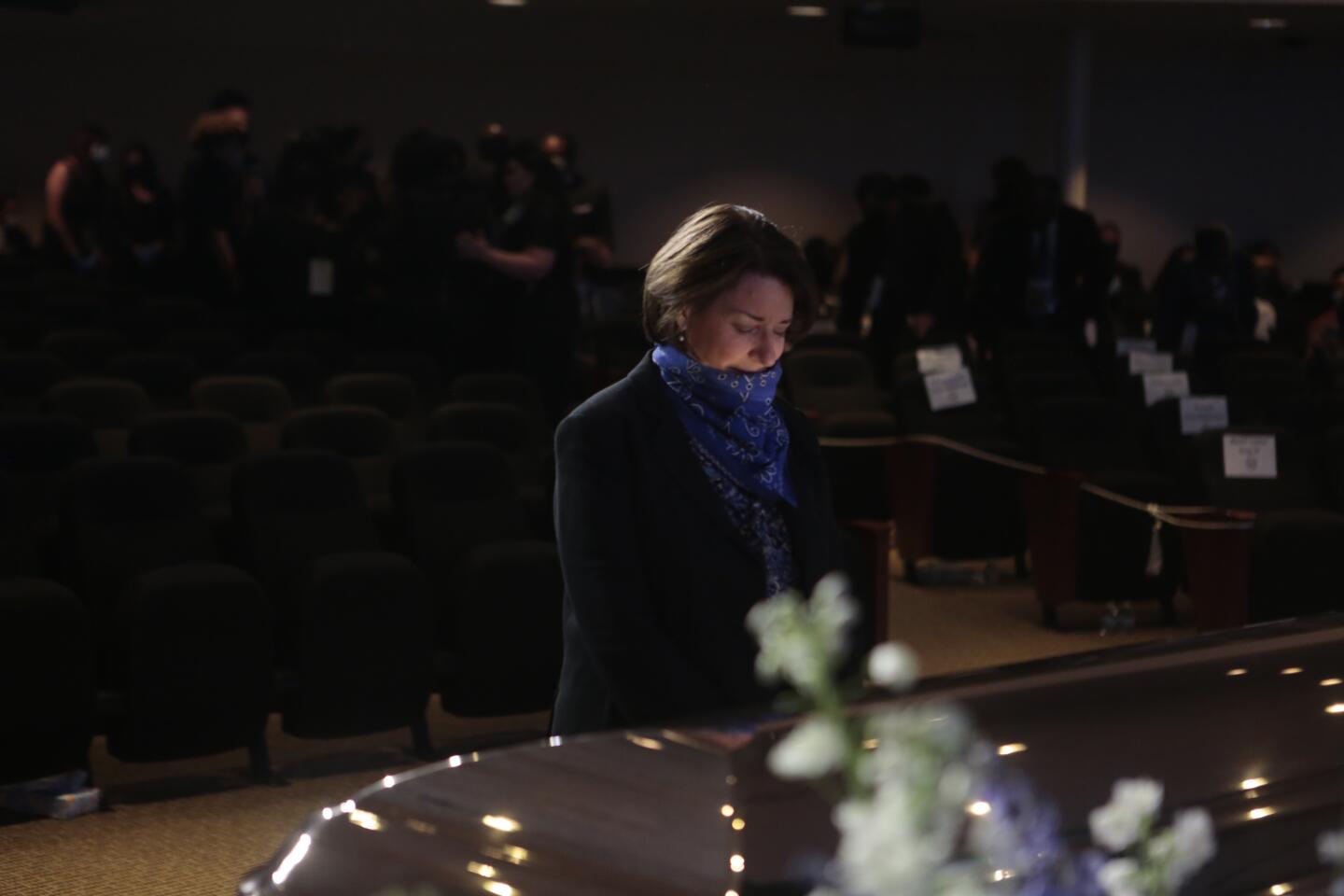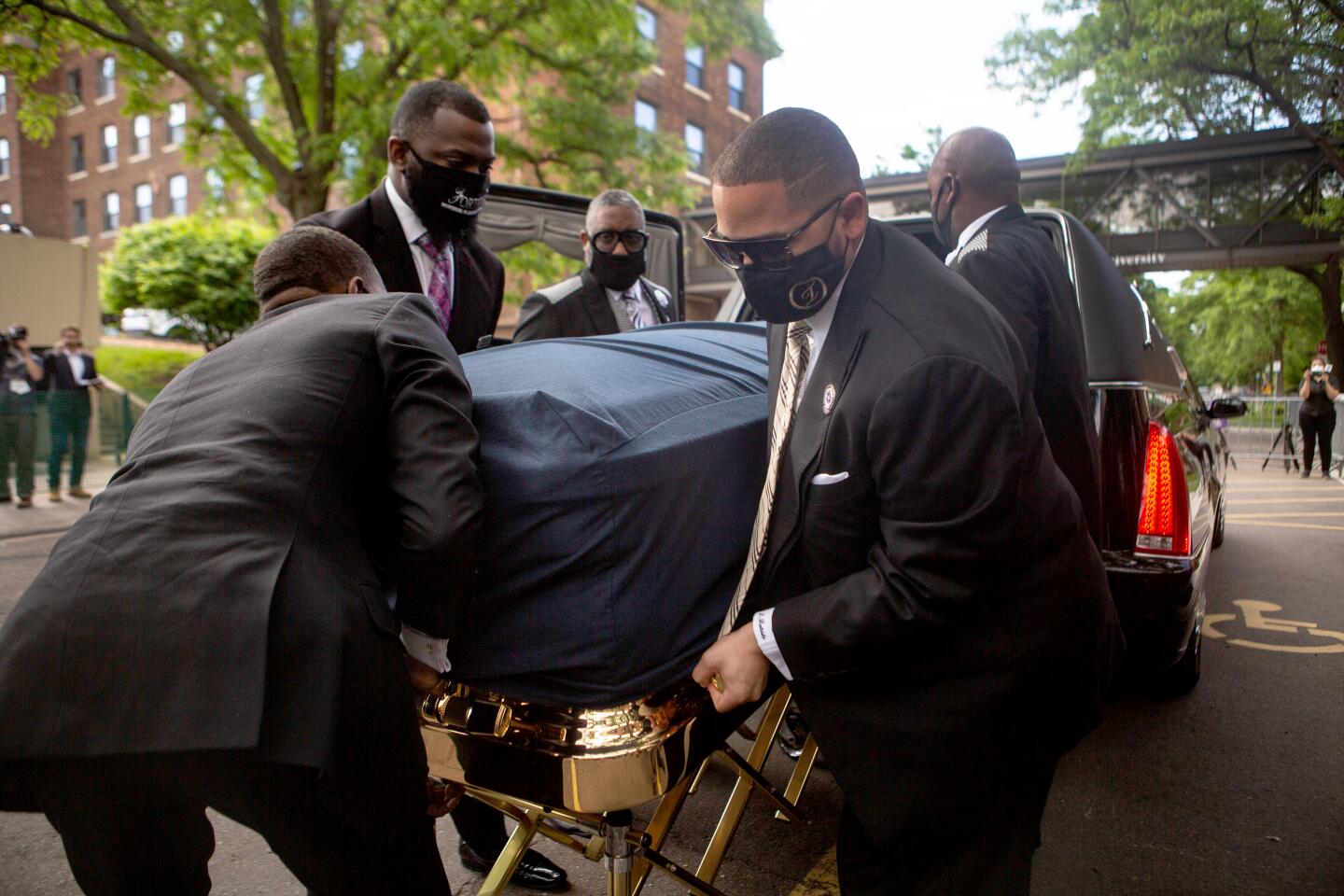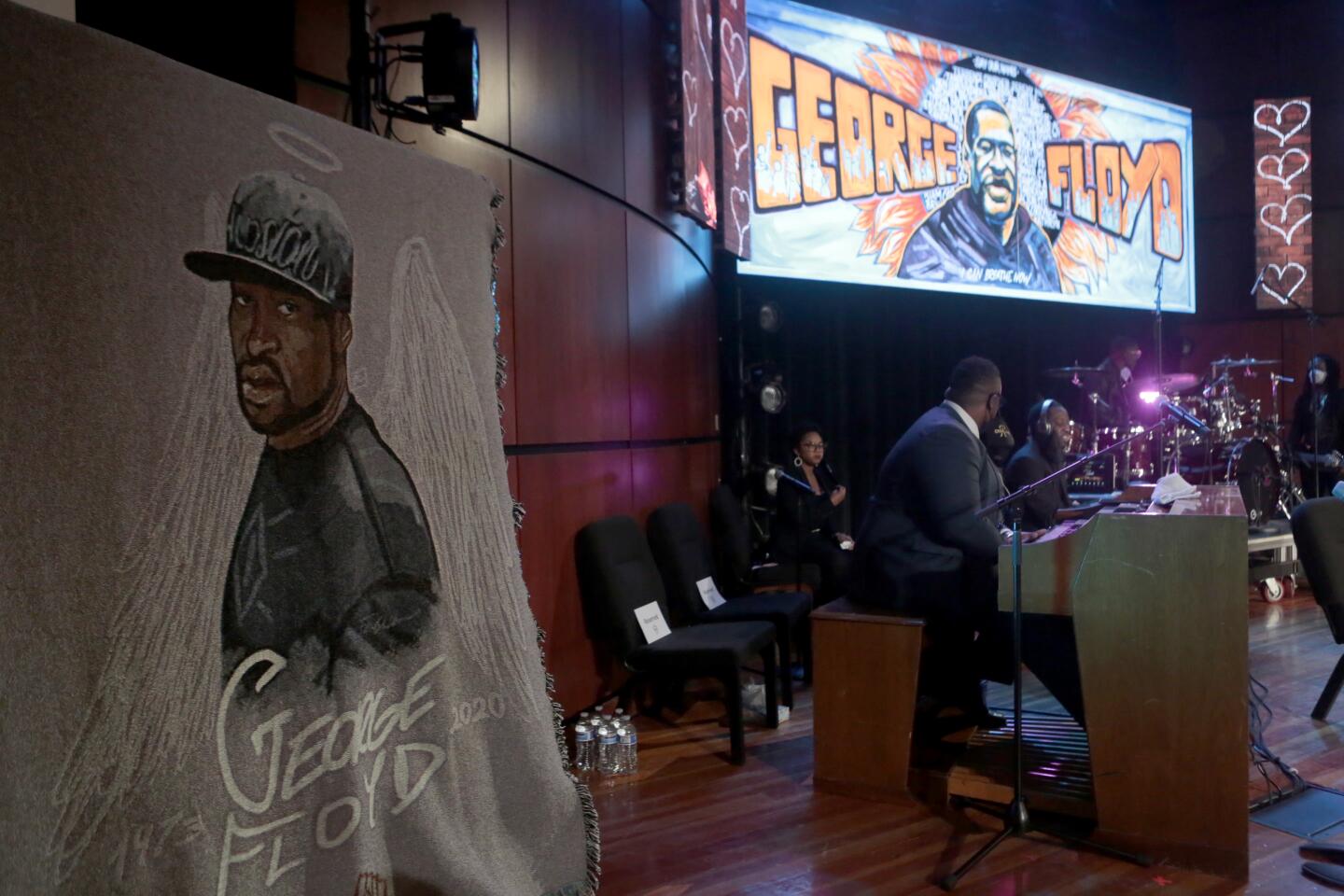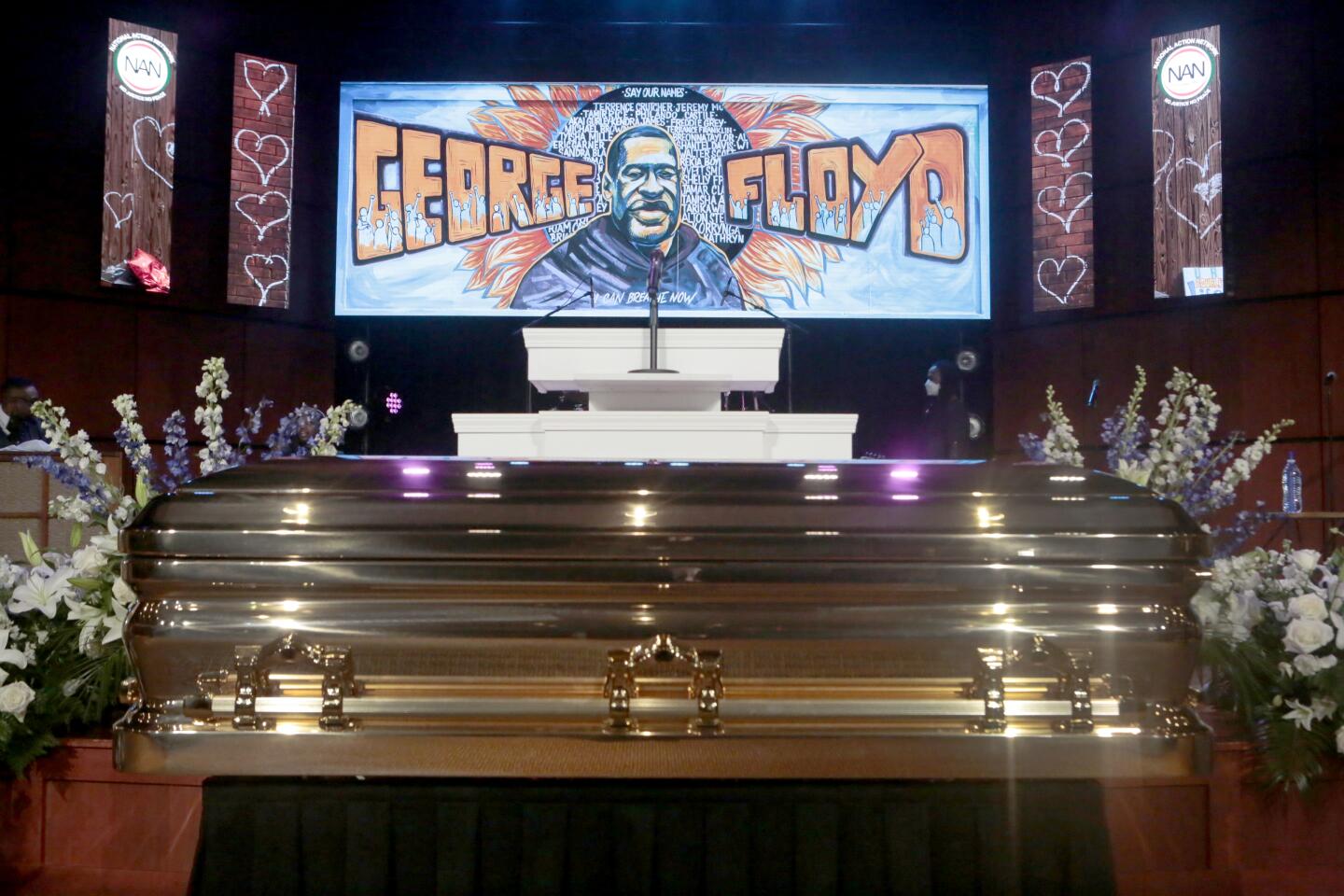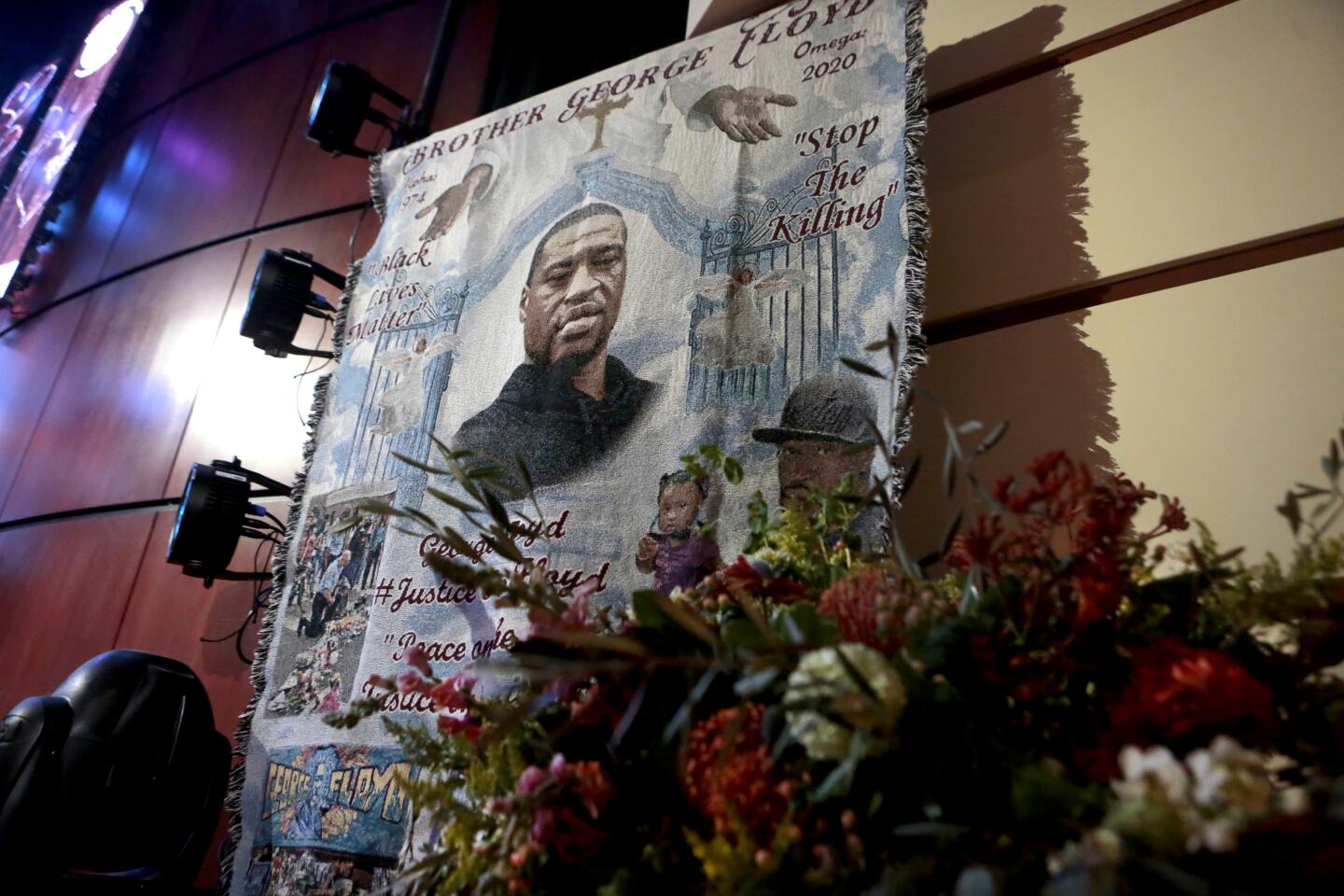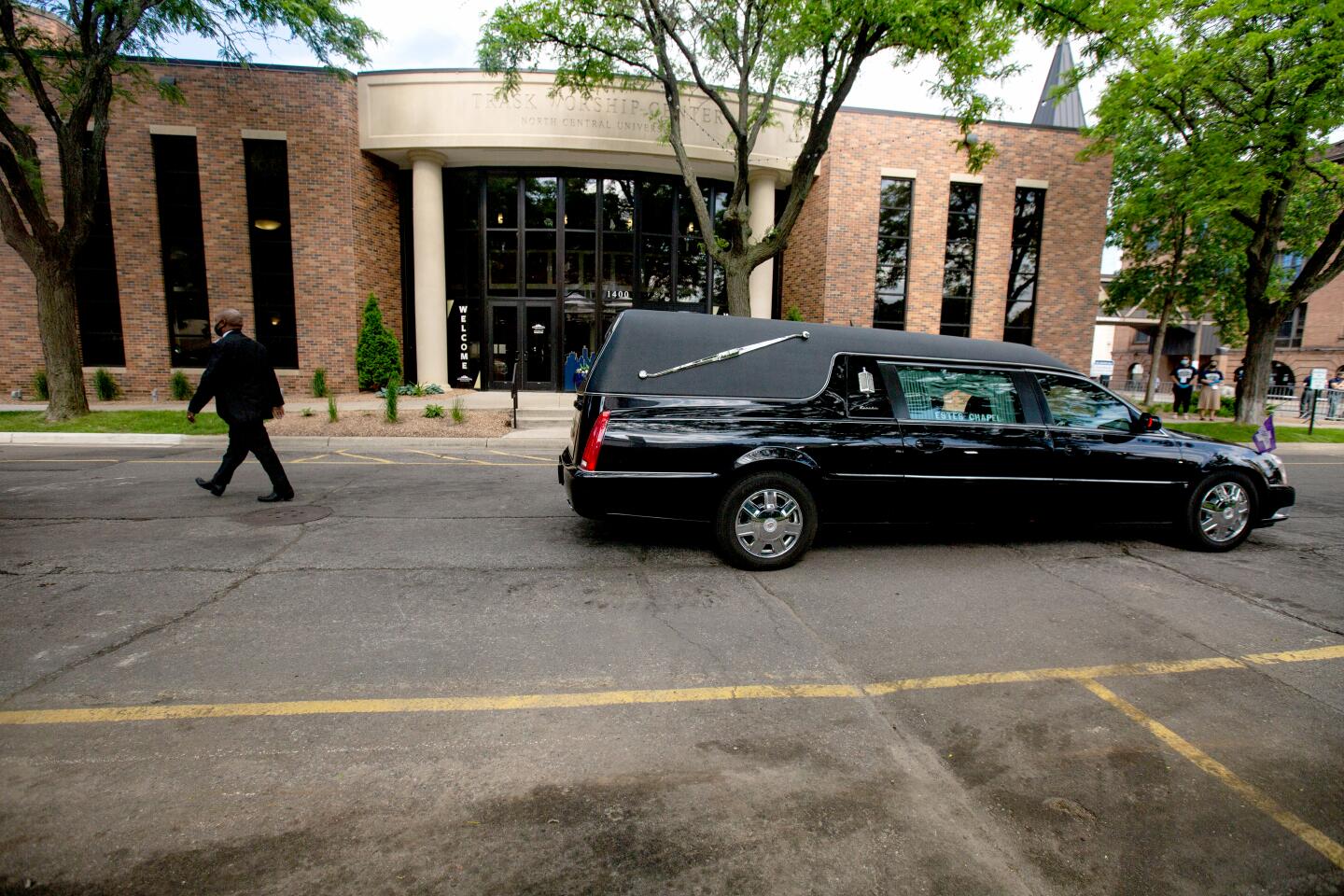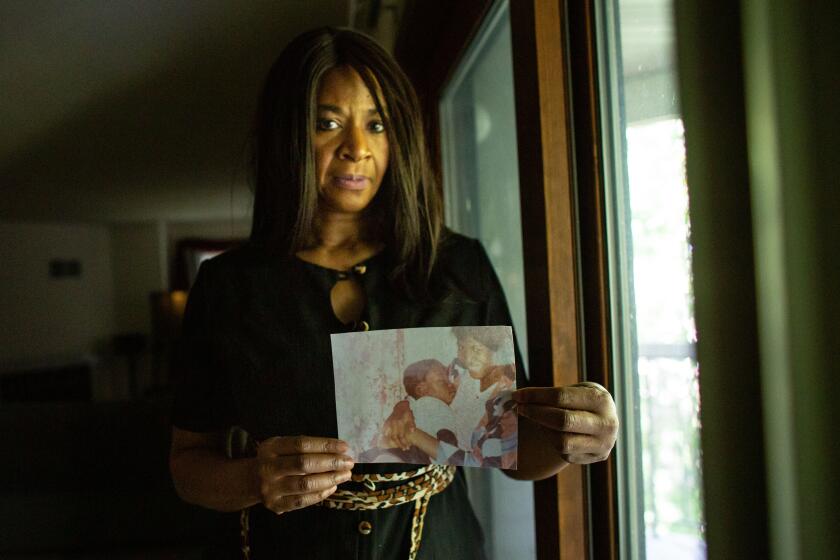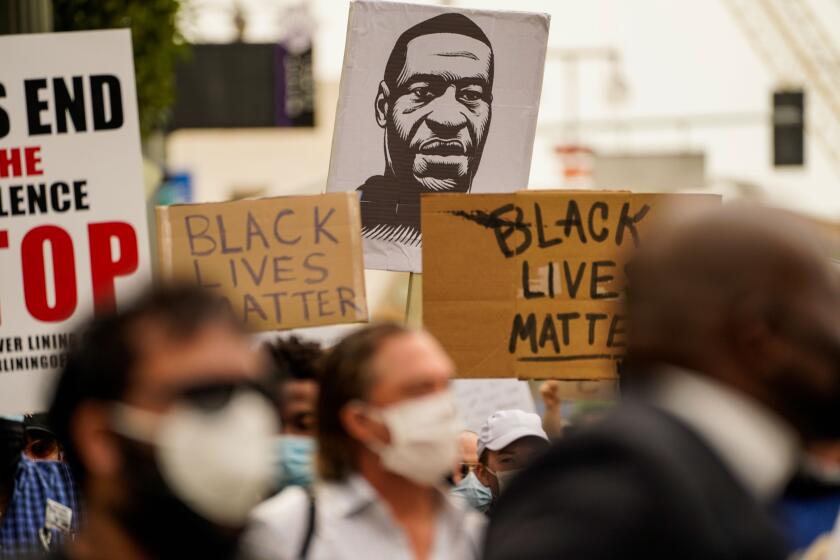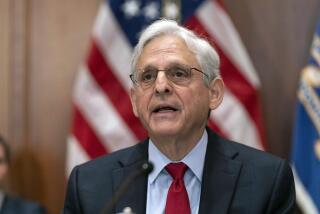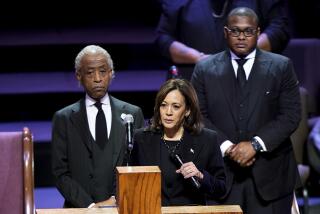George Floyd memorial marks moment of healing and reckoning for Minneapolis and country
- Share via
MINNEAPOLIS — Outside the small university chapel, crowds gathered and chanted: “What’s his name? George Floyd!”
Inside, his youngest brother, Rodney Floyd, stepped to a white lectern above a black-and-gold casket.
He had a request for the mourners: “Can y’all please say his name?”
And they answered: “George Floyd.”
The private memorial in downtown Minneapolis was reserved for relatives and friends and the civil rights activists, politicians and celebrities the family had invited.
In the 10 days since George Floyd died with a Minneapolis police officer kneeling on his neck and onlookers recording on their smartphones, his name has become a rallying cry in a nationwide movement against racism and police violence.
“He was powerful man,” Philonise Floyd, another brother, said of his 6-foot-7-inch sibling. “He had a way with words” that motivated people.
“All these people came to see my brother,” he said. “Everybody wants justice. We want justice for George. He’s going to get it.”
Glenn and Freda Mulbah traveled from a Minneapolis suburb to stand outside the chapel with their five children, ages 18 months to 16 years. Austin, their eldest, said they decided to come because “it’s making history.”
“I just want to feel safer in my society, and to be there for my little siblings and watch them grow up,” he said. “Hopefully, with everybody out here like this, it will change.”
He added: “It would take a miracle, though.”
Shafi, a 21-year-old born in Kenya who’s lived her whole life on Minneapolis’ south side, said even though she couldn’t be inside the chapel, she wanted to be there for Floyd — “out protesting for him.”
“It’s a silence right now,” she said. “A silence that represents the chance for change in the future.”
The guests inside the chapel included the civil rights leaders Martin Luther King III, the Rev. Jesse Jackson and the Rev. Al Sharpton, Minnesota Democrats Rep. Ilhan Omar and Sen. Amy Klobuchar, actor Kevin Hart and former NBA player Stephen Jackson, Floyd’s childhood friend.
Relatives shared stories of Floyd’s love of food and basketball and their hard upbringing in Houston’s Third Ward, a black neighborhood south of downtown.
“We didn’t have much,” said Rodney Floyd, “but we had a house full of love.”
George Floyd’s ancestors lost land, education and their lives to racist U.S. policies
Benjamin Crump, the attorney for Floyd’s family, called for protests to continue.
“Its going to take a united effort fighting in the courtroom and outside the courtroom to get justice for George Floyd,” he said from the lectern.
Sharpton, who gave Floyd’s eulogy, encouraged the mourners “to not sit here and act like we had a funeral on the schedule.”
“George Floyd should not be among the deceased,” he said. “He did not die of common health conditions. He died of a common American criminal justice malfunction.”
Sharpton did not name President Trump, but he made reference to the now-infamous incident in which security forces violently dispersed protesters so he could walk from the White House to a historic church across the street and hold up a Bible for a photo opportunity.
“We cannot use Bibles as a prop,” Sharpton said. “And for those that have agendas that are not about justice — this family will not let you use George as a prop.”
In remarks aimed at Minnesota Gov. Tim Walz and Minneapolis Mayor Jacob Frey, whom he called out by name, Sharpton said: “There’s a difference between those calling for peace and those calling for quiet.”
He also announced a march on Washington in August, on the anniversary of the Rev. Martin Luther King Jr.’s “I Have a Dream” speech, to call for policing and criminal justice reform legislation.
“What happened to Floyd happens every day in this country,” he said. “Stand up in George’s name and say: ‘Get your knee off our necks.’”
On Wednesday, Minnesota Atty. Gen. Keith Ellison announced upgraded charges against former Minneapolis Police Officer Derek Chauvin — who pinned Floyd’s neck with his knee and now faces a second-degree murder charge — and three other officers at the scene, now charged with “aiding and abetting” second-degree murder. All four officers were fired shortly after Floyd’s death.
“They did what we accused them of,” Ellison said Thursday just before the memorial in a conversation on race in America hosted by the Washington Post. “We think the jury will make an objective, unbiased, evidence-based decision that they are guilty, because they are guilty.”
“There is nobody who gets to do what these officers did to George Floyd and just get away with it,” Ellison said. “If you do that, you will be held accountable.”
Minneapolis woman recalls run-in with officer charged in George Floyd killing: ‘I lived to complain’
The woman detained by Minneapolis police officer Derek Chauvin in 2007 remembers being “dragged” away from her crying newborn and yelping dog. Chauvin was disciplined over the incident.
Back outside the memorial, camouflaged military vehicles of the National Guard rolled near where hundreds had gathered in a park and around the university chapel.
Some held protests signs, others handed out free food and water, and vendors displayed T-shirts as they listened to the service on loudspeakers.
At the end of the service, quiet settled over the mourners inside and the crowd outside.
They stood in silence for 8 minutes and 46 seconds — the amount of time Chauvin had knelt on Floyd’s neck outside a corner shop just two-and-a-half miles from the chapel.
When the time was up, as attendees left the service and others still flocked to the chapel site, the chanting resumed: “Prosecute police! No justice! No peace!”
“What’s his name? George Floyd!”
More to Read
Sign up for Essential California
The most important California stories and recommendations in your inbox every morning.
You may occasionally receive promotional content from the Los Angeles Times.
